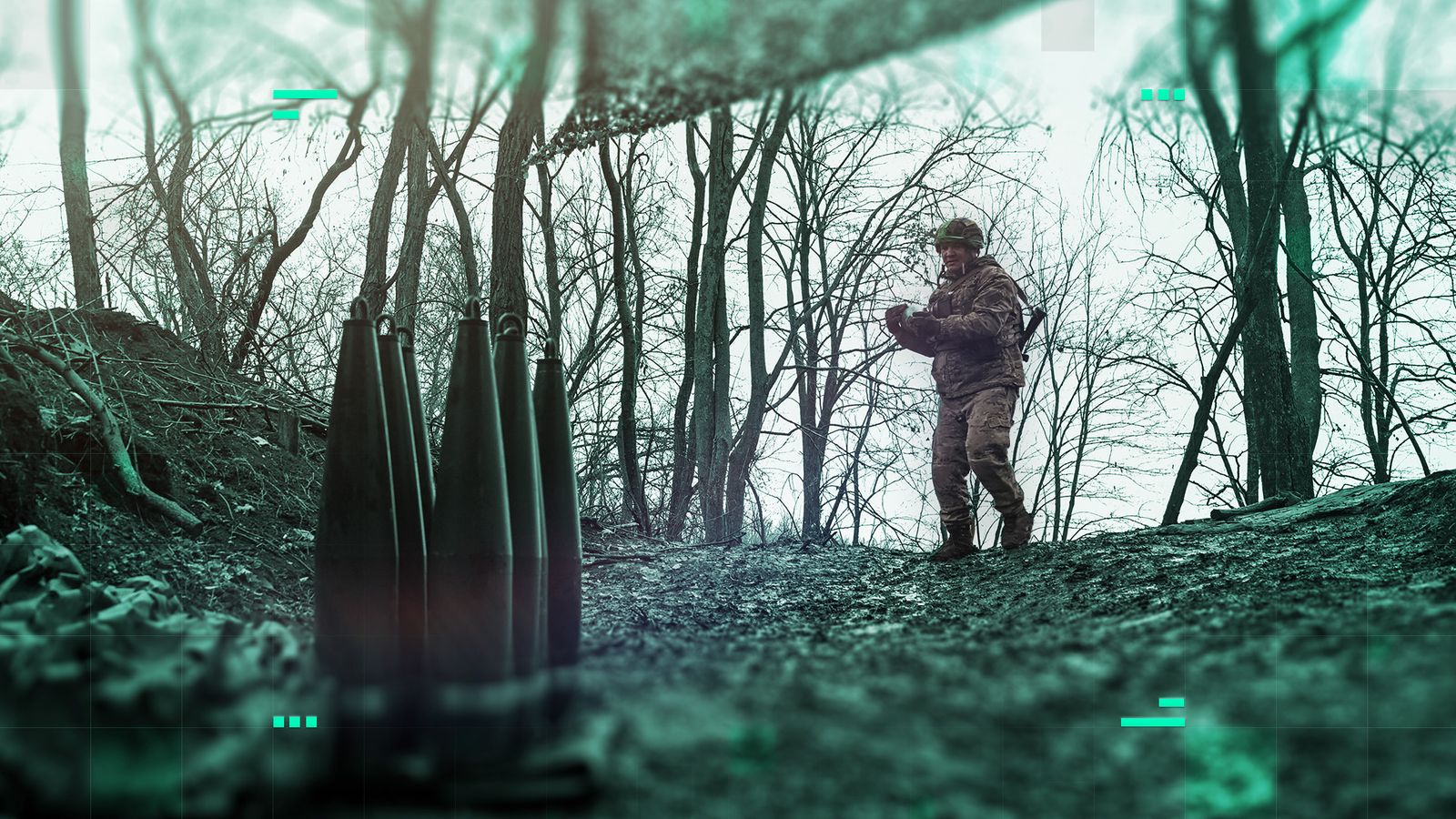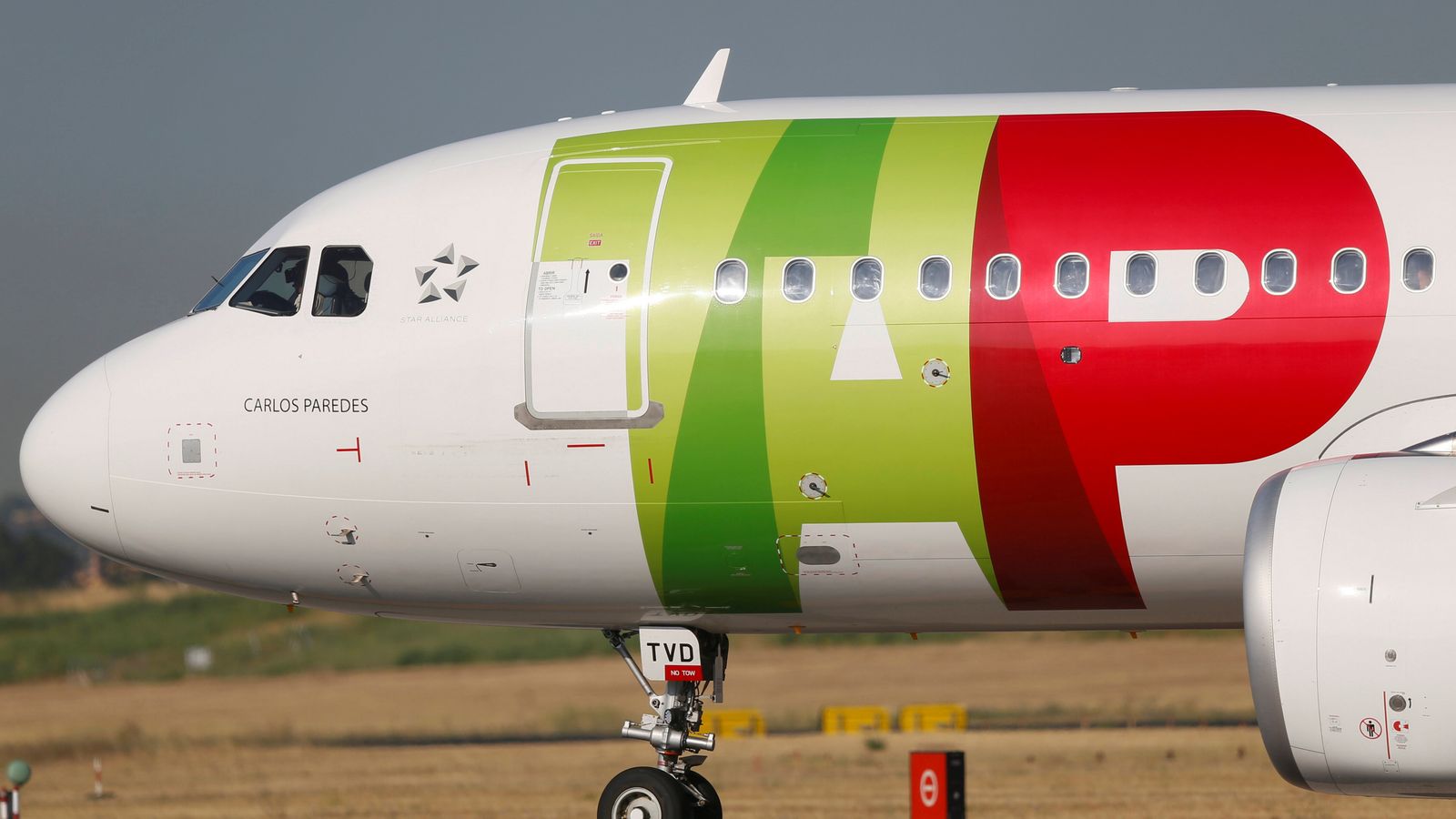
The head of Russia’s nuclear protection forces has been killed by a hidden bomb in Moscow.
Lieutenant General Igor Kirillov died in the street outside a block of flats about four miles (7km) southeast of the Kremlin.
The bomb was inside an electric scooter and was triggered remotely. It had the power equivalent to roughly 300g of TNT, Russian state news agency Tass reported, citing unnamed sources in the emergency services.
Lt Gen Kirillov’s assistant was also killed in the blast.
Kyiv ‘claims it killed senior Russian general’ – follow live
A source from Ukraine’s security services (SBU) told the Reuters news agency it was responsible for the killing. The source said Kyiv regarded the high-ranking official as a war criminal and an “absolutely legitimate target”.
Sky News has not independently verified these claims.
Who was Igor Kirillov?
Lt Gen Kirillov had been the head of Russia’s nuclear protection forces since 2017 – a branch of the Russian army that included radiological, chemical and biological weapons.
The 54-year-old was born on 13 July 1970 in Kostroma.
He went on to attend Kostroma Higher Military Command School of Chemical Defence, graduating in 2007.
During his time there, between 1991 and 1995, he served as a platoon commander in the Western Group of Forces in Germany and the Moscow Military District.
After graduating, he occupied various posts in Russia’s nuclear, biological and chemical defence forces, eventually becoming chief in 2017.
He was married and had two sons.
Link to nuclear weapons
The high-ranking Russian general led Russia’s Nuclear, Biological and Chemical Protection Troops.
According to the Russian defence ministry website, the force’s main tasks involve identifying hazards and protecting units from contamination.
Another listed task of the group is “causing loss to the enemy by using flame-incendiary means”.
Throughout his military career, Lt Gen Kirillov was known for helping to develop the TOS-2 Tosochka heavy flamethrower system.
Although not a nuclear weapon, the TOS-2 is designed to destroy buildings, bunkers, and field fortifications as well as light-armoured vehicles and motor vehicles of the enemy, according to the Russian defence ministry.
Why was he a target?
Ukraine’s intelligence service said Lt Gen Kirillov was responsible for “the massive use of banned chemical weapons” against the Ukrainian military.
According to the SBU there have been more than 4,800 uses of chemical weapons on the battlefield since February 2022, particularly K-1 combat grenades, “by order of Kirillov”.
In May, the US State Department said it had recorded the use of chloropicrin – a chemical weapon first used in the First World War – against Ukrainian troops.
On Monday, Lt Gen Kirillov was sentenced in absentia by the SBU for the use of banned chemical weapons.
The service said more than 2,000 Ukrainian troops had suffered varying degrees of chemical poisoning since the start of the full-scale invasion.
“According to the investigation, the occupiers use dangerous chemicals mainly in the hottest areas of combat, where they try to hide the use of chemical agents under dense artillery fire,” the SBU said.
Russia has always denied using any chemical weapons in Ukraine and, in turn, has accused Kyiv of using toxic agents in combat.
Why was he sanctioned in the UK?
Lt Gen Kirillov was sanctioned by the UK government back in October for using “hazardous chemical weapons on the battlefield”.
In a statement at the time, the UK government said Russian forces had openly admitted to the “widespread use of riot control agents and multiple reports of the use of the toxic choking agent chloropicrin”.
It said Kirillov was “responsible for helping deploy these barbaric weapons” and had also been “a significant mouthpiece for Kremlin disinformation, spreading lies to mask Russia’s shameful and dangerous behaviour”.
Read more:
Killing of Russian general Igor Kirillov will ring alarm bells
Zelenskyy and Putin ‘gotta make a deal’, Trump says
Other hits on Russia soil
Moscow has accused Ukraine of a string of high-profile assassinations on its soil, designed to weaken morale and punish those Kyiv says are guilty of war crimes.
Ukraine, which says Russia’s war against it poses an existential threat to the Ukrainian state, has made clear that it regards such targeted killings as a legitimate tool.
On 9 December – just over a week before Lt Gen Kirillov was killed – an explosive device was placed under a car in the Russian-occupied Ukrainian city of Donetsk.
The device killed and was reportedly targeting Sergei Yevsyukov, the head of the Olenivka Prison, where dozens of Ukrainian prisoners of war died in a missile strike in July 2022.
One other person was injured in the blast.
Russia’s Federal Security Service said at the end of last week that a suspect had been arrested and charged with detonating the device.
Other suspected targets include:
Darya Dugina, a Russian TV commentator and the daughter of Kremlin-linked nationalist ideologue Alexander Dugin, died in a 2022 car bombing that investigators suspected was aimed at her father.
Vladlen Tatarsky, a popular military blogger, died in April 2023, when a statuette given to him at a party in St Petersburg exploded.
A Russian woman, who claimed that she presented the figurine on orders of a contact in Ukraine, was convicted in the case and jailed for 27 years.
Illia Kiva, a former pro-Moscow Ukrainian lawmaker who fled to Russia, was shot and killed near Moscow in December 2023.
The Ukrainian military intelligence at the time lauded the killing, warning that other “traitors of Ukraine” would share the same fate.
















